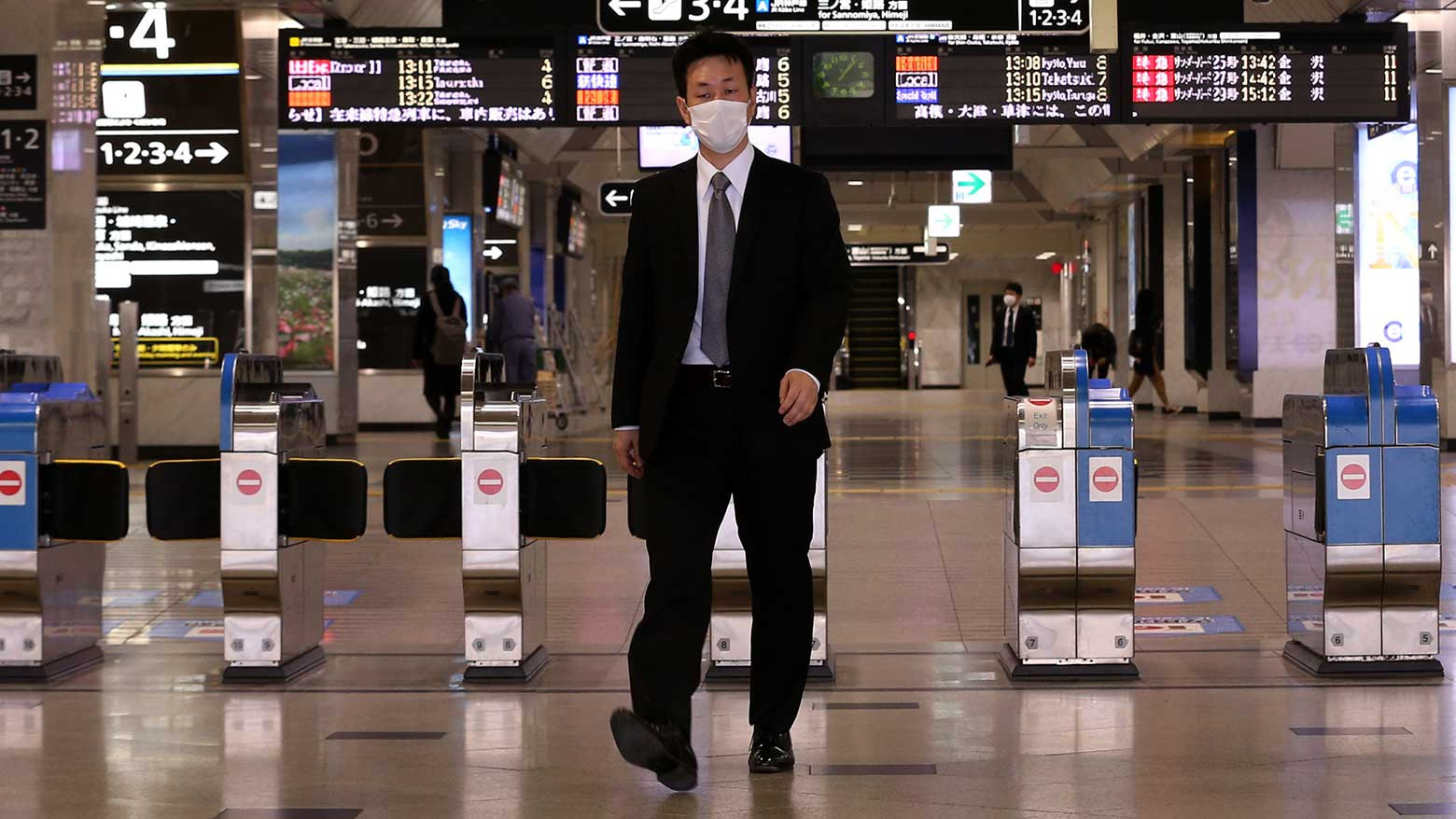Kiuchi Takahide, Executive Economist at Nomura Research Institute, estimates it will take five years for Japan's GDP to return to its pre-pandemic level. He says the road back will be especially hard for the tourism and restaurant sectors, which have been hampered by measures introduced to fight the spread of the virus. Kiuchi says that these industries can't expect to recoup their losses through pent-up demand, which typically favors the automobile and home appliance industries.
A more serious issue, Kiuchi believes, is wage stagnation and decline. GDP figures show real wages fell by 3.8 percent in the second quarter this year, outstripping the 2 percent decline in the second quarter of 2009, when the global financial crisis was wreaking havoc. Kiuchi says the impact on earnings has materialized sooner than expected. He fears it could precipitate a negative spiral where shrinking incomes lead to a decline in spending, which triggers a further deterioration in business conditions and, in turn, a continued decline in wages.
Kiuchi adds that the aftereffects of an economic crisis tend to be more serious and last longer than expected. He notes that in the decade or so since the global financial crisis, Japan's industrial production has failed to rescale its pre-2008 heights, and is now declining again due to the pandemic. He says it will remain weak for some time because consumption has begun to slow again due to a resurgence in the virus in some parts of the world.
Kobayashi Shunsuke, Chief Economist at Mizuho Securities, says the international environment is also changing. China has bounced back faster than other countries, owing largely to government support that boosted corporate output in the April-June period. But domestic consumption has not kept pace.
In the US and Europe, government stimulus has boosted demand, but stringent lockdowns have made it impossible for manufacturers to meet it. According to Kobayashi, the data suggests China has been increasing its exports to those markets to fill the gap.
He describes the situation as a return to the global trade imbalance that existed before the onset of the pandemic. China is once again becoming the world's main production center. Not only that, but it is emerging as the winner in a deflationary environment caused by a global decline in corporate earnings and a growing appetite for low-priced products. This could further escalate the US-China confrontation.
Kobayashi says the Japanese government will have to react. He says it will need to create a sphere where the economy can flourish even as the world shifts to a kind of globalization where blocking and decoupling are taking place. He says the mechanisms of multi-lateral trade deals such as the Trans-Pacific Partnership and the European Trade Agreement will be vital in this respect.
Kobayashi says within Japan's special sphere, the business community will have to secure sales channels and offer more value. He says companies have found themselves in a fluid environment, and only the ones that can adapt quickly will be able to survive.

